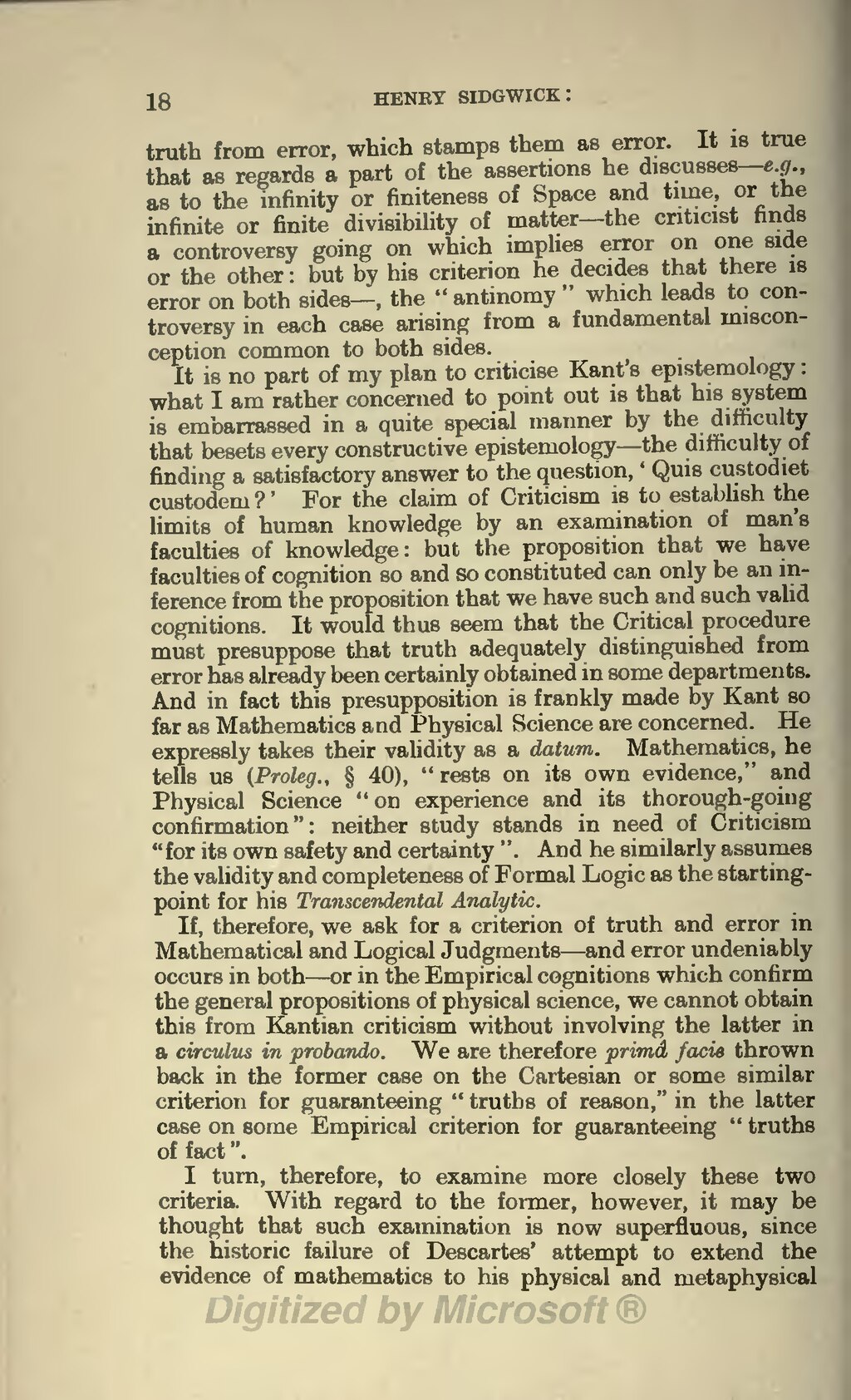truth from error, which stamps them as error. It is true that as regards a part of the assertions he discusses—e.g., as to the infinity or finiteness of Space and time, or the infinite or finite divisibility of matter—the criticist finds a controversy going on which implies error on one side or the other: but by his criterion he decides that there is error on both sides—, the “antinomy” which leads to controversy in each case arising from a fundamental misconception common to both sides.
It is no part of my plan to criticise Kant’s epistemology: what I am rather concerned to point out is that his system is embarrassed in a quite special manner by the difficulty that besets every constructive epistemology—the difficulty of finding a satisfactory answer to the question, ‘Quis custodiet custodem?’ For the claim of Criticism is to establish the limits of human knowledge by an examination of man’s faculties of knowledge: but the proposition that we have faculties of cognition so and so constituted can only be an inference from the proposition that we have such and such valid cognitions. It would thus seem that the Critical procedure must presuppose that truth adequately distinguished from error has already been certainly obtained in some departments. And in fact this presupposition is frankly made by Kant so far as Mathematics and Physical Science are concerned. He expressly takes their validity as a datum. Mathematics, he tells us (Proleg., § 40), “rests on its own evidence,” and Physical Science “on experience and its thorough-going confirmation”: neither study stands in need of Criticism “for its own safety and certainty”. And he similarly assumes the validity and completeness of Formal Logic as the starting-point for his Transcendental Analytic.
If, therefore, we ask for a criterion of truth and error in Mathematical and Logical Judgments—and error undeniably occurs in both—or in the Empirical cognitions which confirm the general propositions of physical science, we cannot obtain this from Kantian criticism without involving the latter in a circulus in probando. We are therefore primâ facie thrown back in the former case on the Cartesian or some similar criterion for guaranteeing “truths of reason,” in the latter case on some Empirical criterion for guaranteeing “truths of fact”.
I turn, therefore, to examine more closely these two criteria. With regard to the former, however, it may be thought that such examination is now superfluous, since the historic failure of Descartes’ attempt to extend the evidence of mathematics to his physical and metaphysical
